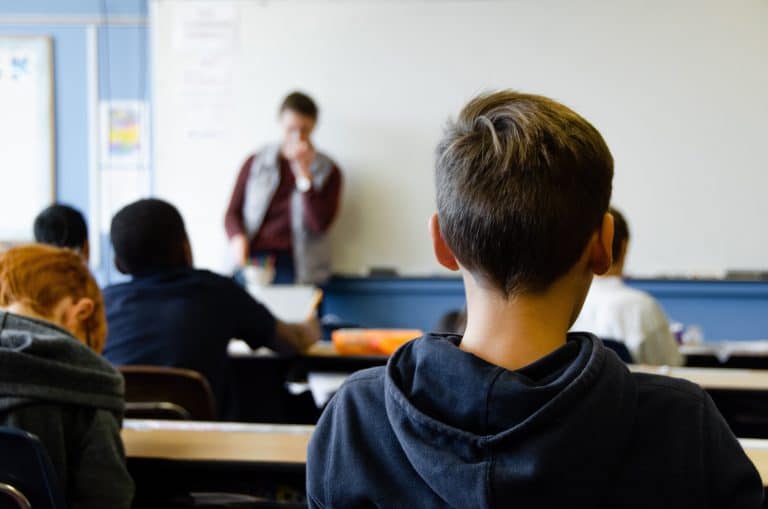Hearing is one of the most important senses when it comes to the learning process. This is because ‘overhearing’ is how children learn the bulk of their vocabulary. Students with hearing loss don’t have the same access to information as their peers, as they cannot overhear as well, even with assistive listening technology.
Below we review more impacts of hearing loss on learning and provide strategies can teachers can employ to accommodate students with hearing loss.
Impacts of Hearing Loss on Learning

Some of the impacts of hearing loss on learning, according to the American Speech-Language-Hearing Association, include:
- Delayed development of receptive and expressive spoken language skills.
- Learning problems and reduced academic achievement.
- Social isolation and poor self-concept.
- Impression of fewer vocational choices.
- Listening fatigue.
- Smaller vocabulary and simpler sentence structures.
- Trouble producing hard-to-hear sounds like “s,” “sh,” “f,” “t,” and “k.”
- Tendency to perform at lower grade level than peers with normal hearing.
Fortunately, intervention can help prevent these and other learning difficulties.
How Teachers Can Accommodate Students with Hearing Loss
Between 2009 and 2019, the number of students with disabilities, including hearing loss, who spent 80% or more of their school day in general education classes in regular public schools increased from 59% to 65%.
This means, if you’re a general education teacher in Sioux Falls Schools, the chances you’ll have a student in your class who experiences hearing loss are far from slim. To accommodate them, we recommend the following strategies:
- Sit students with hearing loss near the front and center of the room, if this is what they prefer.
- Use assistive listening technology when available, including FM systems, if your student’s hearing aids are compatible.
- Try to minimize background noise.
- Repeat questions asked by any students before responding.
- Face the class when you’re speaking, rather than facing the board.
- Keep lighting bright to assist with lipreading.
- Provide written materials and instructions to supplement lectures and labs.
- Define technical terms and subject-specific jargon early in your lessons.
- Use captions on all videos that you play.
For more information or to schedule an appointment, call Ear, Nose & Throat Consultants today.